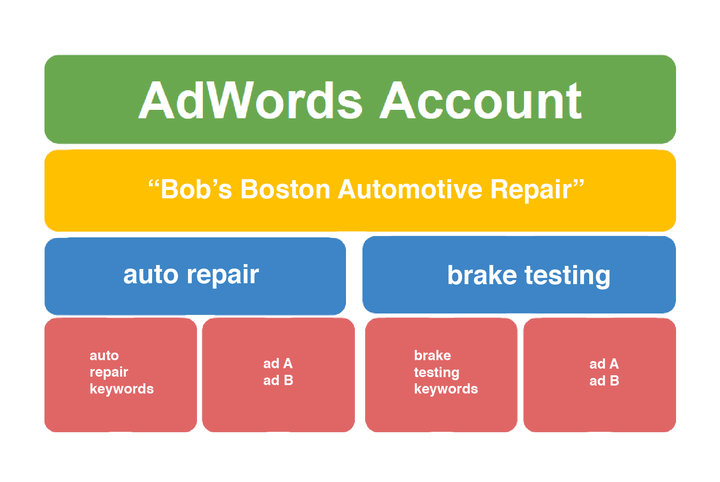Key(word)s to Success: How We Target Eager Customers
Service Direct has been connecting service professionals and potential customers with localized advertising campaigns for more than a decade. In that time, we have developed advertising campaigns for more than 150 unique service professions.
In addition to following good location targeting methods and making eye-catching ad extensions , we've found that an important part of our success has involved anticipating the language our clients' future customers will use when they are ready to reach out to service professionals. Just as importantly, we've learned to respond to the language used by searchers who click on our clients' ads to bring in more high-fidelity traffic. Central to this process is careful Adgroup and keyword selection and optimization.
Every search marketing campaign that competes for ad space on Google or Bing is organized into themed clusters of ads and keywords called Adgroups. Ads organized by these distinct themes are triggered to appear on internet users' screens when their search query matches our keywords and our ad ranking (based primarily on bids and metrics selected by Google/Bing) is high enough to allow for our ads to appear above competing ads.

Well-cultivated adgroups and keywords allow for targeting specific goods or services under the umbrella of a larger ad campaign. For example, advertisements for a local auto shop might have distinct adgroups for general "auto repair" and "brake testing." This thematic coherence helps encourage clear connections between search queries and ad content. In addition to targeting core concepts, we also refine these adgroups to connect with searchers who are most likely to be actively seeking for service professionals in their area. For example, if our auto repair shop were in Boston, we might use the keyword phrase "Boston auto repair" to connect with internet users looking for precisely that. Or, if looking for time-sensitive searches, we might deploy keywords like "emergency auto repair."
In addition to picking keywords that potential customers might use, we also bid more cash per click for keywords that have the best chance of connecting our clients with high value customers. For example, an auto shop targeting customers in Boston might want to more aggressively show ads to people who are looking for "Boston auto mechanics" than they would on a more broad term that could be less likely to result in a service call, such as "squeaky wheels."
After launching campaigns with carefully chosen keywords, we take important steps to refine our campaigns and drive successful leads to our clients. Perhaps most importantly, we use data from Adwords and Bing advertising platforms to observe what people actually typed when they clicked on our ads. If our auto shop campaign was targeting users who enter the phrase "auto repair" in their search engine, some of our first searches might be similar to these:
-
local auto repair companies
-
auto repair companies near me
-
auto repair shop that does collision work
-
how to start an auto repair business
-
auto repair how to videos
When examining search histories like this, it is important to distinguish searches that lead to successful service calls from those which do not and respond accordingly. While the first three searches listed above appear to be on target, the final two miss the mark; people asking how to start a business are obviously not prospective customers; searchers for "how to videos" are more likely looking for a way to do repairs themselves. One powerful way to prevent searches that are unlikely to result in good business is to add keyword negatives to our campaigns, which indicate words or phrases that disqualify a search from triggering our ads. In response to the searches above, we might create negatives blocking searches with the phrases "how to videos" or "start an auto repair business" to increase the quality of traffic.
Search results don't only provide opportunities for blocking bad traffic; they also provide data that we can use to make our advertising strategy more robust. Take for example the third listed search term above: "auto repair shop that does collision work." If our auto shop specializes in collisions, we might create a whole new ad group with ads and keywords targeting people who searches with the words "auto" "collision" and "repair"--and if those searches cause especially helpful customer interactions, we might even raise the bids on these keywords.
This kind of optimization takes a lot of effort and a willingness to experiment. With time, training, and extensive data collection, however, these principles lead to better ad campaigns and strategies. As our experiences with different industries have matured, we've developed increasingly sophisticated strategies for connecting potential customers with our clients and responding to client feedback about our ad campaign performance. Moreover, we've been able to develop marketing strategies that get the right results quickly.
Don't have time to dedicate to running your own successful ad campaign? Get in touch with Service Direct's sales team to help you get leads for your business by clicking on Schedule a Demo above and filling out your company information.


